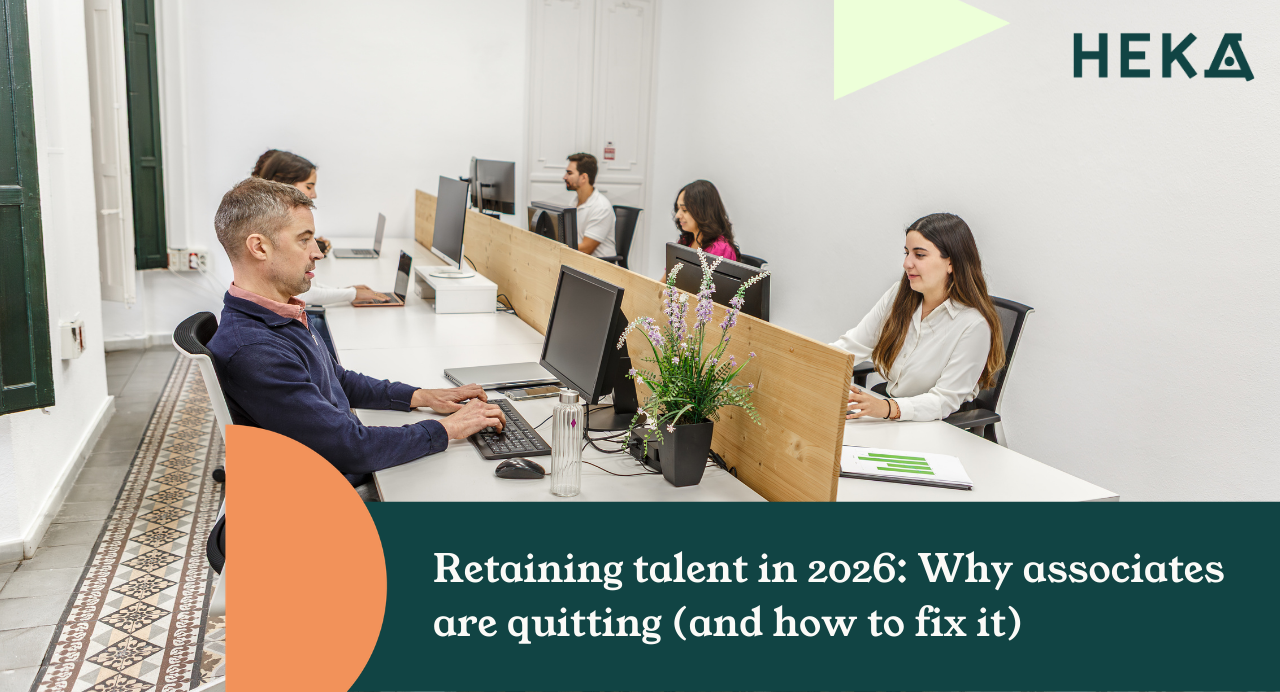A quick summary:
“What does the 2025 Budget announcement mean for me?”, is a pretty common question from HR and reward teams across the UK right now. There’s a clear shift coming in how UK employers will need to think about pay, reward, and benefits, so it’s reasonable to have questions.
But while some headlines sound dramatic, the real story is simple: the most successful organisations won’t necessarily have the biggest budgets - they'll be the organisations that create the most value with their existing budgets.
Changes always feel huge in the wake of the announcements, but they don’t need to be drastic. At Heka, we’re here to help businesses navigate this with a clear plan.
Why this budget matters (but not for the reasons you think)
The most notable change for HR and reward teams is the upcoming £2,000 cap on National Insurance relief for pension salary sacrifice (coming into effect in 2029). Cutting through the jargon, this means:
- High pension-sacrifice contributions become less tax-efficient
- Employers absorbing NI costs may see budgets tighten
- Employees may feel the impact on take-home pay
- Payroll and reward systems will need updating
- The “big pension” strategy will no longer be the catch-all benefit it once was
If your organisation relies on pension salary sacrifice as the centrepiece of its benefits package, it’s time to rethink, not panic, as there is time.
You don’t need more budget. You need a smarter strategy.
Smart companies won’t throw money at this, they’ll rebalance
2029 may feel distant, but it’s time to start thinking about how to navigate the impending changes now. Last minute business pivots can lead to uncertainty (from the top down) and wasted budget. The best way to make business decisions that actually work is to start early.
1. The work starts today (not in 2028)
This is not a problem for ‘future you’: if you want to address these challenges thoughtfully and avoid big cost shocks, planning needs to start sooner rather than later. You can start by:
- Identifying high earners who’ll exceed the £2,000 threshold
- Modelling employer NI cost exposure
- Reworking pension policies to stay cost-neutral
- Communicating early with employees to avoid future confusion, and control the narrative before questions start pouring in
By doing this now, you can expect to avoid:
- A ‘surprise ’NI bill in 2029
- Last-minute benefits changes employees resent (anything last-minute will feel like a loss)
- Budget panic cycles that ripple through the business
Planning early costs nothing.
Reacting late can cost everything.
2. Make your benefits work harder, without lifting a finger (or spending more!)
If pensions become less efficient, that doesn’t mean benefits have to get worse, it means benefits must get smarter.
We’re helping businesses redirect a small fraction of their pension overspend into:
- Strategic wellbeing support
- Lifestyle benefits
- Financial coaching
- Mental health resources
- Learning & development allowances
- Recognition and reward programmes
- Flexibility-boosting policies
Without the need for more budget, Heka customers deliver benefits that:
- Feel more tangible to employees
- Reduce turnover and burnout
- Improve engagement
- Cost significantly less than large pension uplifts
Pension contribution reductions feel like a loss to employees who place high-value on them. Introducing a benefit which is not only more visible, but more useful day-to-day offsets that resentment, while also driving huge amounts of ROI. It’s not about more money, it’s about more impact.
3. Prioritise high-value, low-cost benefit options
Doing nothing isn’t an option right now. Regardless of the plans you had in place for the short- and medium-term, you need to be taking action, and that action needs to be thoughtful and focused on long term success. Focus on areas untouched by the 2025 Budget announcements, which remain incredibly cost-efficient, including:
- Cycle to Work stays tax-free and uncapped
- EV benefit schemes remain attractive (with new mileage rules to plan for)
- Lifestyle & wellbeing stipends boost perceived value enormously
In other words, there are still plenty of ways to give employees what they need and want, without spending more.
Companies that double down on these high-impact, low-cost benefits will weather the changes effortlessly.
4. Three options, only one good outcome
As the dust settles from the Budget announcement, we’re seeing three future scenarios emerge across UK employers:
The good:
You adapt early, rebalance benefits, avoid NI shocks, and communicate clearly. Minimal cost. Maximum employee goodwill.
The in-effective:
You absorb extra NI costs but don’t rethink benefits until later. Inertia is manageable, but inefficient and creates longer-term ‘fiscal drag’: things will keep getting worse.
The bad:
You change nothing until 2029 and get hit with a huge NI bill.
Expensive, rushed, stressful, and frustrating for employees.
The difference between “good” and “bad” employee benefits isn’t budget.
It’s timing, planning, and communication.
5. Doing more with what you have: The HR cheat-sheet for 2025 Budget changes
Here’s what we advise every employer to do in the next 12-months, regardless of size or sector:
Map your risk
Who in your business contributes over £2,000/year via salary sacrifice?
What's the projected NI exposure from 2029?
What premium increases are you forecasting for insurance benefits? With an average premium increase for Private Medical Insurance this year of 70%, this is guaranteed to rise again next year. (You can off-set spiralling costs by focusing on preventative health measures that reduce the amount employees are using their PMI.)
Rebalance your benefits
Shift some value from pensions towards lifestyle and wellbeing benefits
Make your package feel more impactful without raising spend - focus on personalisation, and breadth and depth of benefits available to your team
Communicate early and transparently
Employees don’t like surprises, and clear, honest communication preserves trust. Remember that most employees will be aware of changes impending, but not know what that looks like for them. You’re the expert, so it’s critical you communicate in a way that keeps everyone bought into your company’s goals and mission.
Refresh your benefits tech and processes
You’ll need clear, automated processes for:
- New pension caps
- NI calculations
- EV scheme changes
- Benefit eligibility tracking
Add benefits that create high perceived value
A £30 monthly benefit feels more meaningful and tangible than a £360/year pension tweak.
Add benefits that create high perceived val
6. The future belongs to the employers who get creative
Budgets won’t magically grow in 2025 or 2026. But expectations increase every year.
The companies who will thrive will undoubtedly be those who understand that benefits today aren’t about giving more money, they’re about giving more meaning.
And that’s where Heka comes in.
Heka is a flexible, health & wellbeing focused employee benefit that empowers companies to do more with what they already have. Using AI and behavioural data, Heka puts the right benefits in front of your people, when they need them.
With a personalised allowance and access to thousands of health and wellbeing, lifestyle, financial, mental-health and fitness experiences, Heka replaces unused, one-size-fits-all perks with benefits people actually use.
Heka is designed for modern teams, reducing admin, boosting retention, and driving high performance. With over 90% of users engaging quarterly, Heka turns benefits from a cost centre into a meaningful retention and wellbeing driver.
Heka is how smart companies prepare for the future: flexible, high-impact benefits that remain valuable even as pension rules, NI caps and reward strategies change. It helps organisations deliver more choice, more impact and more meaning, without increasing budget.
Do more. Spend less. Give employees what they truly value.
Want to learn more? Speak to the team today!






